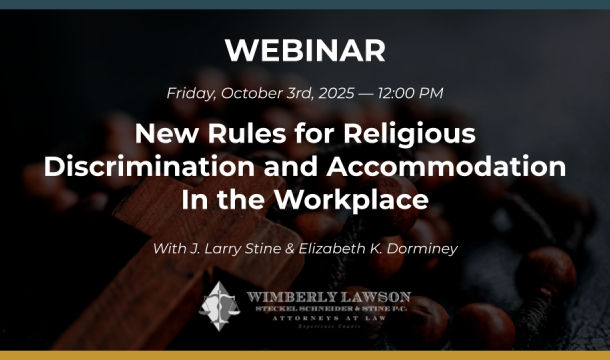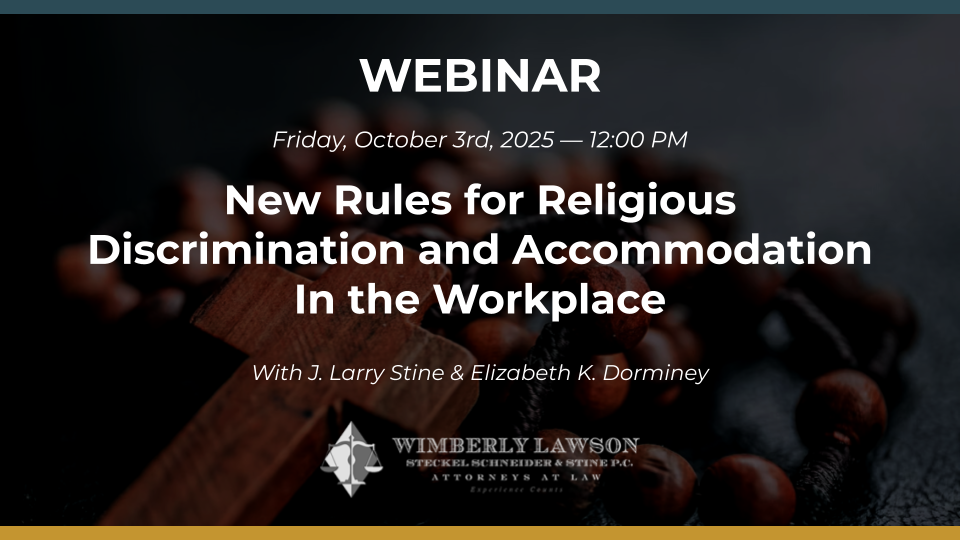If Your Company Conducts Criminal Background Checks of Applicants—Watch out for the EEOC!
A recent decision from a Pennsylvania federal district court demonstrates how aggressively the U.S. Equal Employment Opportunity Commission (EEOC) is pursuing its enforcement directives in regard to employers' use of arrest and conviction records in hiring. The EEOC has taken the position that the practice of using arrest and conviction records in hiring decisions could have adverse impacts based on race, ethnicity and sex. In EEOC v. Crothall Servs. Grp., Inc., E.D. Pa., No. 15-3812, 6/28/16, the federal district court held that the Equal Employment Opportunity Commission may pursue a lawsuit alleging a Pennsylvania-based employer that uses a criminal background screen in hiring is not keeping the records needed to determine if its screen discriminates against racial minority and male applicants.
What is most significant about this ruling is that the court is allowing the EEOC to maintain the lawsuit even though it has not identified an individual who has suffered or will suffer an injury as a result of the company's alleged record-keeping violations. What the EEOC is alleging is that the company is violating Title VII of the 1964 Civil Rights Act and an agency record-keeping regulation codified at 29 C.F.R. § 1607.4(A) by not maintaining information on the effects of a test used in hiring. The court rejected the company's argument that the record-keeping language found in the Uniform Guidelines on Employee Selection Procedures is "permissive" and cannot support an EEOC lawsuit to compel compliance.
The EEOC's regulation on what records and information an employer must maintain regarding the impact of tests and selection procedures can be found here. If your company is currently using criminal background checks or other tests to screen out applicants, we suggest that you consult with competent employment counsel to ensure that you are keeping the appropriate records.

Kathleen J. Jennings is a former principal in the Atlanta office of Wimberly, Lawson, Steckel, Schneider, & Stine, P.C. She defends employers in employment matters, such as sexual harassment, discrimination, Wage and Hour, OSHA, restrictive covenants, and other employment litigation and provides training and counseling to employers in employment matters.
Related Content
Get Email Updates
Recent Content

Trump Nominates Appointments to NLRB and EEOC but Policy Changes Likely to Be Delayed

DOL Launches Self-Audit Programs Designed to Help Employers Improve Compliance

DOL Must Release EEO-1 Reports to the Public under Open Records Laws

Current Advice on Active-Shooter Situations

New Policy for Federal Workers and Religious Expressions

